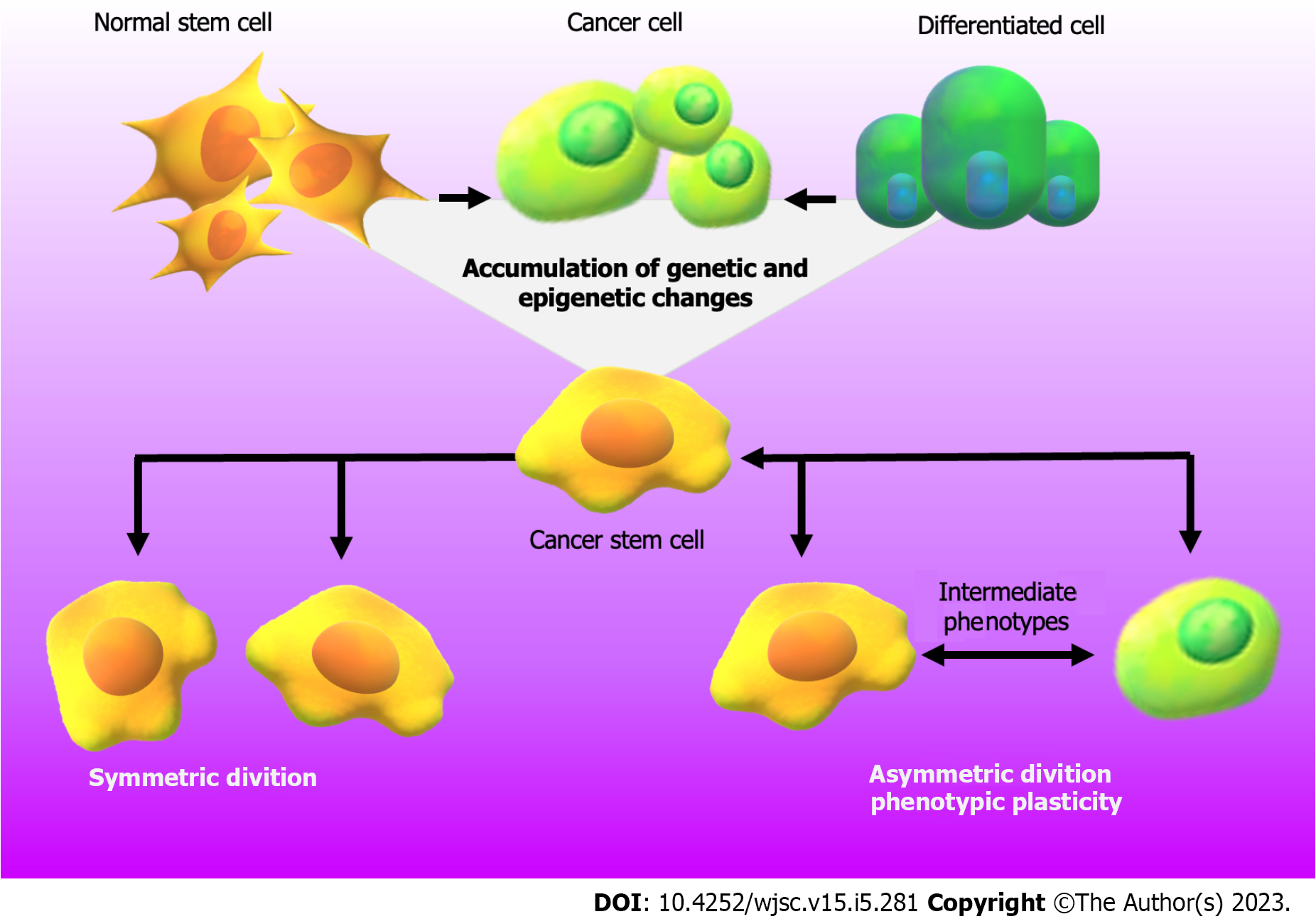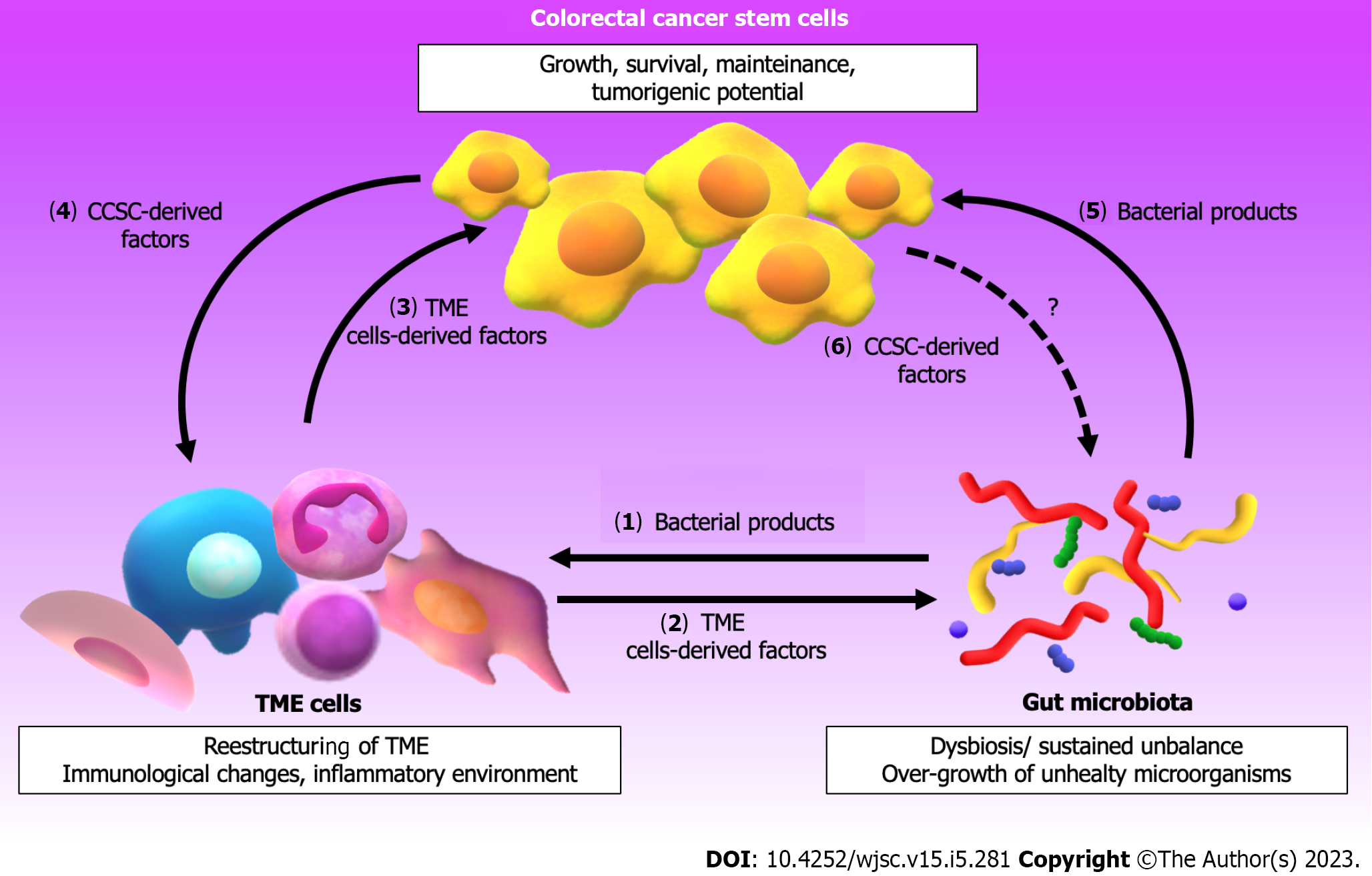Copyright
©The Author(s) 2023.
World J Stem Cells. May 26, 2023; 15(5): 281-301
Published online May 26, 2023. doi: 10.4252/wjsc.v15.i5.281
Published online May 26, 2023. doi: 10.4252/wjsc.v15.i5.281
Figure 1 Theory-based models of cancer stem cell.
The ability of cancer stem cells (CSC) to maintain their population response to symmetric/asymmetric division, resulting in the first situation in two identical stem cells daughters and in the second situation in two distinct cells with or without CSC properties. In addition to the division theory, CSC undergo a bidirectional conversion process between stem and non-stem phenotype. During this phenomenon, cells can exchange their status within the tumor transforming from CSC to intermediate phenotypes to stemless states and vice versa. Also differentiated cells, normal stem cells or cancer cells through the accumulation of genetic and epigenetic changes are capable of initiating and promoting cancer development. These general theories are applicable to colon CSC.
Figure 2 The interplay among the tumor microenvironment and the gut microbiota influences the stemness of colorectal cancer cells.
(1) Gut microorganisms and/or their derived products in a dysbiosis context influence the restructuration of tumor microenvironment (TME), favoring the release of several factors (growth factors, cytokines, non-coding ribonucleic acids and enzymes), immunological changes and an inflammatory environment; (2) The factors released by TME cells impact on intestinal microbiota promoting the growth of unhealthy microorganisms and their sustained unbalance; (3) Moreover, these TME factors can modulate the properties and behavior of colorectal cancer stem cells (CCSC) promoting effects such as their growth, survival, maintenance and tumorigenic potential; (4) In this context, CCSC response expressing factors that enable them to communicate with stromal cells and also influence a TME restructuration; (5) Microorganisms and/or their derived products can directly modulate the features and properties of CCSC, which in response; and (6) Probably affect the intestinal microbiota. All these associated events contribute to colorectal cancer progression. CCSC: Colorectal cancer stem cells; TME: Tumor microenvironment.
- Citation: Novoa Díaz MB, Carriere P, Gentili C. How the interplay among the tumor microenvironment and the gut microbiota influences the stemness of colorectal cancer cells. World J Stem Cells 2023; 15(5): 281-301
- URL: https://www.wjgnet.com/1948-0210/full/v15/i5/281.htm
- DOI: https://dx.doi.org/10.4252/wjsc.v15.i5.281










